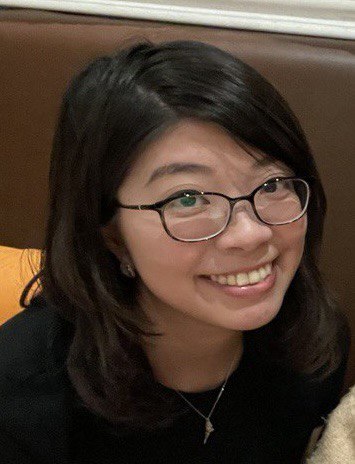 WONG Yi – fiction writer, essayist, librettist, editor; Hong Kong – is the author of several short stories collections. She won the 2018 Hong Kong Arts Development Award for Young Artist and was in 2020 among the “20 most anticipated young Sinophone novelists” in the Taiwanese magazine Unitas. She lives and works in Hong Kong
WONG Yi – fiction writer, essayist, librettist, editor; Hong Kong – is the author of several short stories collections. She won the 2018 Hong Kong Arts Development Award for Young Artist and was in 2020 among the “20 most anticipated young Sinophone novelists” in the Taiwanese magazine Unitas. She lives and works in Hong Kong
Azam Abidov: What is it like to be a writer/poet in Hong Kong?
Wong Yi: Being a writer in Hong Kong definitely feels like everything you do for your art is a labour of love.
I’m sure most of my fellow Hong Kong writers would agree that literature is not something we do for profit or for fame, for it would bring you neither in this fast-paced and materialistic city that rewards most other pursuits far more handsomely. Yet, this is precisely why Hong Kong writers’ love and dedication for our art feel so pure and intense: instead of investing our time and effort in so many other possible and worthy things, we choose time and again to make time in our impossibly packed schedules to return to our writing desks and our bookshelves, in spite of everything that want to convince us to give up. And the literary fruits that come of this quiet and determined labour are so worth it: so many unique voices and imaginative stories that pay attention to details and the world at large, with a respect for history and other cultures.
I myself have been writing and publishing fiction for over 15 years, and all four of my books were written when I was a full-time student or had a full-time job. What’s more, all of these books were first published in newspaper columns at some point, so I’d be waking up at 3am to write and submit my columns before going to school, or go straight home after my 9-6 job to work on stories for the Sunday newspaper. I’m not necessarily a person of great discipline in other areas of my life, but the joy of writing compels me to spend almost all of my free time on the art that I love.
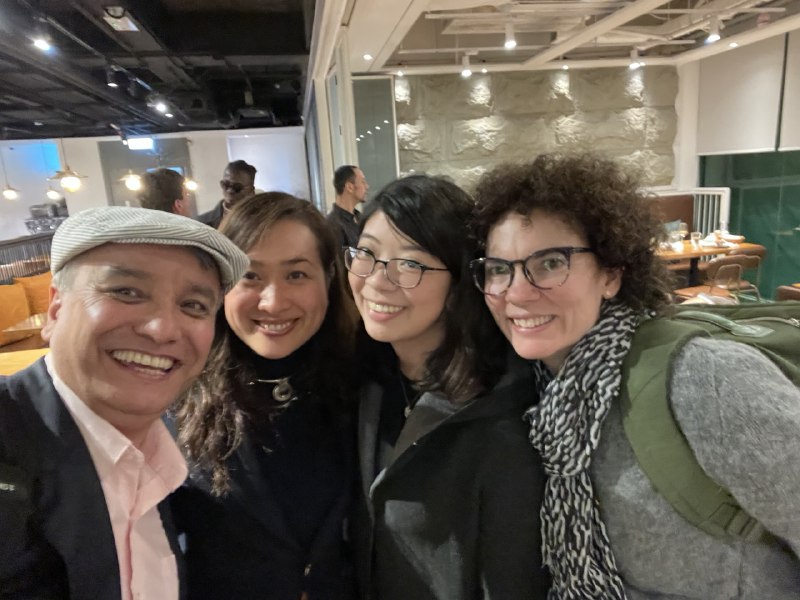
A.Abidov: What were your main takeaways from the Iowa program?
Wong Yi: Getting to participate in the International Writing Program Fall Residency at the University of Iowa was a dream come true. I am honoured to become part of an international literary community that has experienced the unique residency, and humbled to see that there is still so much for me to learn about world literature and my own writing. I went into the IWP expecting to learn about my fellow writers and their work, and I am surprised about how much I learned about myself in the process. Getting to see how other writers view the world and approach their
work led me to reflecting on my own habits and perspectives in writing, and challenging myself about all the “shoulds” and “musts” that stood in the way of new experiences and literary experiments. The IWP taught me to be bolder and braver in going forward with my art while continuing to learn from the world.

I also learned to say “no” a lot more. One of the first things Christopher Merrill, director of the IWP, told us during our orientation is to “husband your time”: he said nothing the program was doing was more important than what we were doing, and we were free to decide which readings or classes to go to according to our own writing schedules and wishes. Coming from a literary scene where everyone helps each other by being editors, judges, administrators, teachers and more, at one point I felt myself spread too thin to be able to do what I really wanted to do as a person who writes. Many writers in my cohort taught me in various ways how important it is to husband my time and safeguard my energy in a world that makes constant demands for it. It’s a lesson that I wouldn’t have been able to learn if I had not gone to Iowa.
A.Abidov: Could you please name three most important things for a modern/successful writer to know?
Wong Yi: I would say that three important things I learned from my own writing are:
1) Be true to yourself. There will always be people telling you (kindly or otherwise) to do things their way, but your unique voice and perspective are what makes your writing so special. Learning to figure out which pieces of advice to take and which external voices to shut out is something I constantly have to work on.
2) Take good care of yourself. I find it nearly impossible to produce good writing if any aspect of my wellbeing (physical, emotional, social etc.) is significantly off, so I am always learning to sit up straight, remember to call my friends, and work on my personal growth.
3) Have fun! I mean, we are probably getting bad eyesight and neck pain from all this writing. It would be so much more worth it if we had as much fun as we could on our way to becoming squinty old goblins.
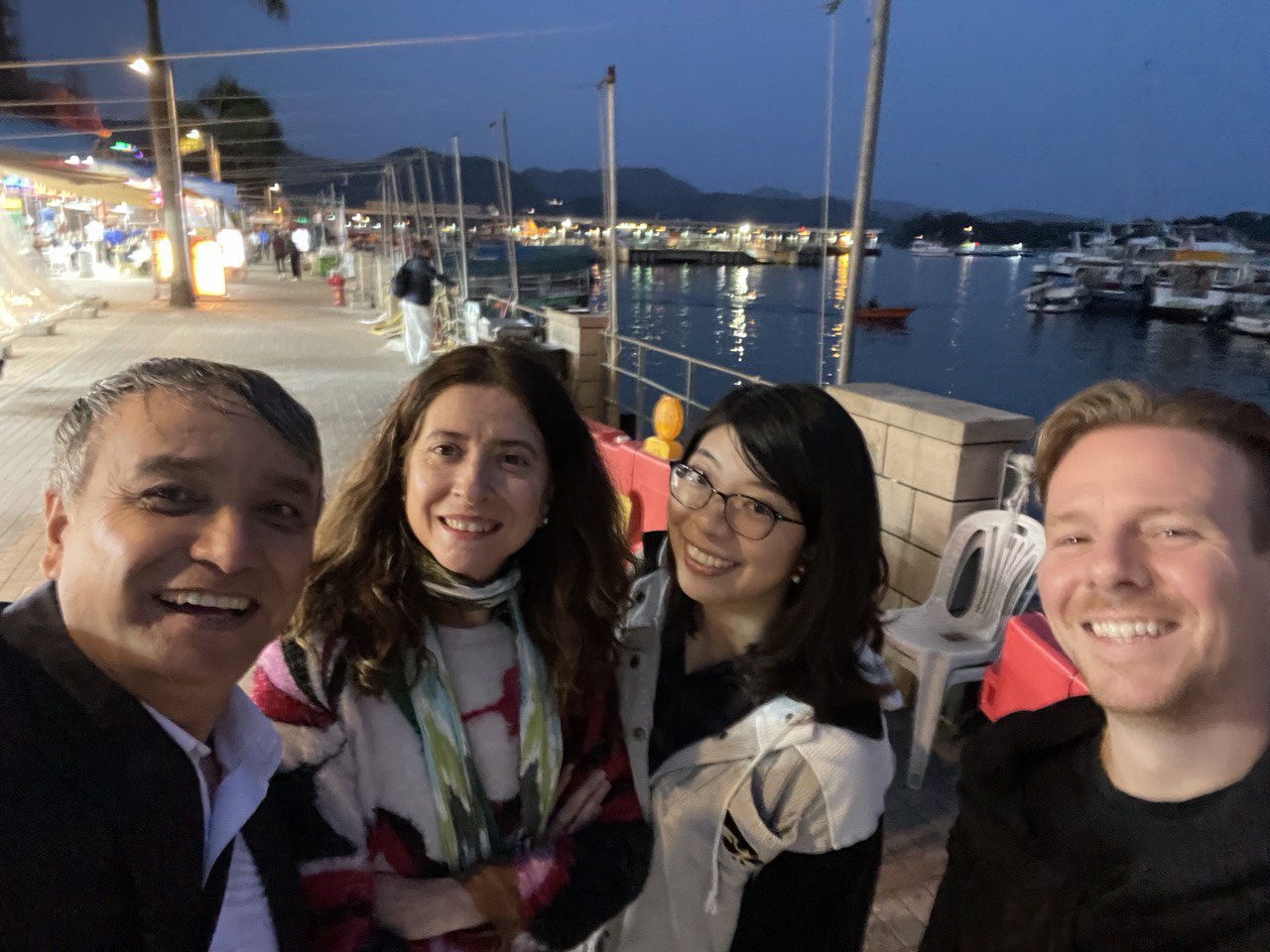
A.Abidov: Do you have a literary agent? What is the situation with literary agencies in Hong Kong?
Wong Yi: I don’t have a literary agent at the moment, though I would really like to have one so that book-length translations of my work can be published in the international market. There isn’t really a culture of having literary agents for Chinese-language writers in Hong Kong: anyone is free to approach any Hong Kong publisher they want with their projects, and translators / movie directors / composers etc. are also free to approach any author directly and negotiate on collaborations. I feel like this puts Hong Kong writers at a disadvantage in the international
publishing market, as many writers in Hong Kong didn’t even know that literary agents existed and how important they are in getting published outside of the Chinese-speaking market.
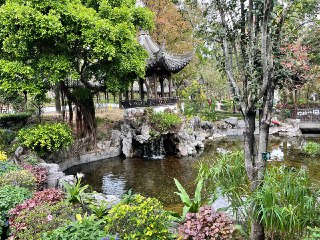
Luckily, more and more writers from Hong Kong are seeking and signing with literary agents based outside Hong Kong, and their books (both translated into other languages and their Chinese-originals) have been doing very well overseas. I hope that more and more people can get to know everything Hong Kong literature has to offer through publication, translation and adaptation: so for literary agents and editors out there, please reach out to Hong Kong writers you find interesting, I’m sure they’d be more than happy to speak to you!
A.Abidov: Do people like to read in Hong Kong? Is poetry not becoming marginal in Hong Kong?
Wong Yi: Hong Kong is not really known for being bookish, and it’s rare for people to be seen reading in public. Yet, the people in Hong Kong who do love to read and enjoy literature are so passionate that it keeps the literary scene energetic and creative. The book worms may be very low key, but they are definitely out there to offer their support for writers, poets, publishers and booksellers they believe in.
I feel like poetry has always been on the margins of society at large, but for the Hong Kong literary circle, poetry always has a special place. Everyone who loves Hong Kong literature will most likely have read Leung Ping-kwan’s poetry about food and travelling, Xi Xi’s imaginative poems observing the world with kindness and childlike wonderment, and Yam Gong’s poems using Cantonese in his own charming way. Hong Kong poets are constantly writing and publishing their work in Chinese originals or in translation: some of the recently published
Chinese-English bilingual titles I enjoyed reading include Xi Xi’s Carnival of Animals (translated by Jennifer Feeley), Ho Fuk-yan’s Love in the Time of Coronavirus (translated by Teresa Shen), Yam Gong’s Moving a Stone (translated by James Shea and Dorothy Tse), and Derek Chung’s A Cha Chaan Teng That Does Not Exist (translated by May Huang). Do check out Hong Kong poets and translators’ work if you like poetry!
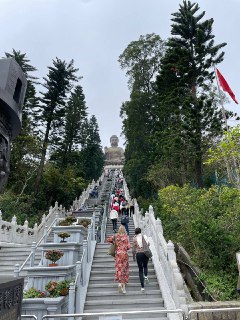
A.Abidov: Do you know something about Central Asian literature? Uzbekistan literature?
Wong Yi: I am a bit ashamed to say that I haven’t had a lot of experience reading Central Asian literature or Uzbekistan literature, but I do know that it has a lot of great poetry and mythologies, and is influenced by many languages and cultures throughout history. I hope it’s not totally cliché to say that I enjoy Rumi’s poetry and One Thousand and One Nights; I also had the pleasure of getting to know Aigerim Taizhi from Kazakhstan during my residency in Iowa, a friendly poet whose work makes use of imagery from nature beautifully. During my residency in Iowa I also learned about the ghazal, and that it is a form of poetry popular in Central Asia as well. I hope I can get my hands on some good translations of Central Asian and Uzbekistan literature so I can learn more about it!
A.Abidov: Thank you so much! Good luck with your creative journey! And come to Uzbekistan, bring your friends from Hong Kong and be my guest!




